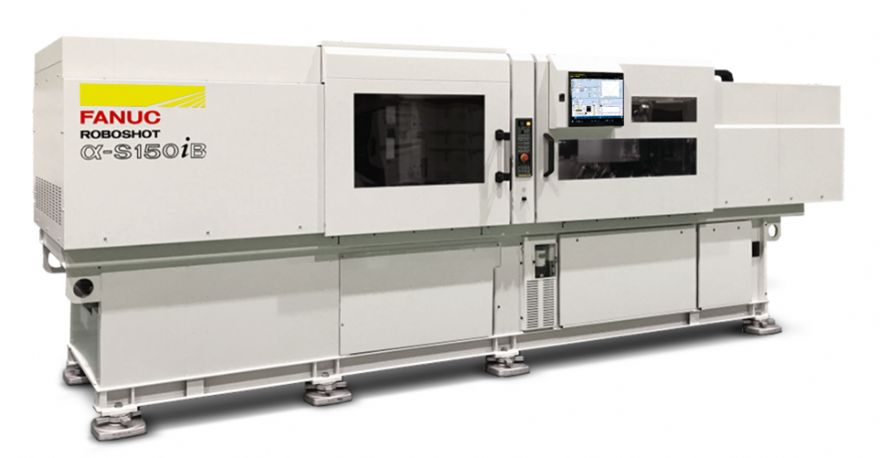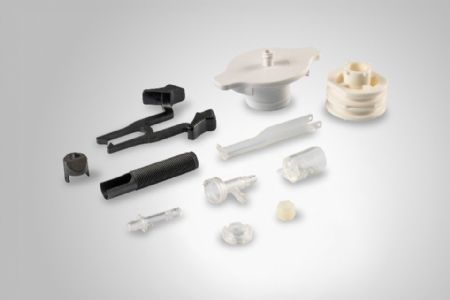
Ireland is home to a buoyant medical sector, with 14 of the top 15 medtech companies in the world based there, and is a magnet for tech investment. While the UK may not yet be a match for Ireland on the international stage, the UK medical devices sector also supports a thriving manufacturing base, with over 3,000 companies operating in the sector. The UK is particularly strong in the manufacture of orthopaedic, imaging, diagnostics and cardiovascular devices.
Key to success in the manufacture of plastic medical devices are injection moulding machines. However, not all machines are created equal — the wrong choice can prove costly — so it is imperative that medtech manufacturers ensure that any potential supplier fully understands their process and the priorities for their business.
Manufacturers should also discuss with suppliers not just the initial purchase price of a machine, but also its total cost of ownership (TCO). Investing in equipment that uses less energy, creates less waste, reduces contamination and consistently delivers a quality product for customers will deliver savings across the board.
Rigorous standardsWith 40 years’ experience in delivering all-electric injection moulding machines into the sector – and as the clear market leader in Ireland –
Fanuc has a strong understanding of the challenges faced by manufacturers of medical devices. This article examines how the right injection moulding machine can help companies to meet the sector’s rigorous standards without breaking the bank.
One of the key priorities for medtech manufacturers is adherence to cleanroom standards. An area which can be overlooked in this regard is the risk associated with hydraulic injection moulding machines. Whenever a mould change takes place, there is a chance of contamination occurring, meaning the environment has to be thoroughly cleaned.

But even after this, particulates can escape from hydraulic machines, for example through seals. This is not the case with all-electric versions, such as the Fanuc Roboshot. Manufacturers must therefore discuss contamination risks with any potential supplier to make sure they are not just purchasing the right machine for their process, but also for their environment.
Another priority for manufacturers is stability – in order for a process to be validated and certified, it needs to be consistently stable. Being able to maintain key parameters with repeatable precision gives confidence to a medical device manufacturer that their parts are being produced to a high standard in a consistent manner. This is also relevant when moving moulds from one machine to another. Ideally, a mould would be left in the machine to reduce the risk of destabilising any of the key parameters required for validation. But in a busy production facility with multiple machines running, this is not always possible.
The Roboshot uses the latest electric servo technology with up-to-date machine calibration. This means that when moving moulds – whether across a factory floor or from country to country – the process will remain consistent. Make sure to ask any potential supplier how their machine will ensure process – and product – consistency.
Stringent carbon targetsThe medical devices sector in the UK is dominated by large multinational companies and as such, it can be difficult for firms to break into their supply chains. One factor in this is stringent carbon targets which must be met not just by the multinationals themselves, but by every company they deal with throughout their supply chain. Selecting an injection moulding machine that meets the highest sustainability ratings will not only result in lower energy bills but may also increase the likelihood of securing contracts.
All-electric injection moulding machines use up to 70% less energy than their traditional hydraulic counterparts, largely due to the higher base load (energy consumed when the machine is idling, such as during cooling phases). Generally, hydraulic machines waste electricity through the transfer of energy and movement of oil. In cases where non-servomotor technology is used, energy wastage is much higher due to the constant running of the pump motor. This is not the case for all-electric machines. In addition, the simplified mechanical complexity of all-electric moulding machines makes for fewer process steps and less energy loss.
Fanuc’s Roboshot goes even further than this, consuming 10-15% less energy than other all-electric machines. For any manufacturer of medical devices looking to cut their energy costs, improve their sustainability credentials, or break into the supply chain of a multinational, the importance of energy performance should not be overlooked.